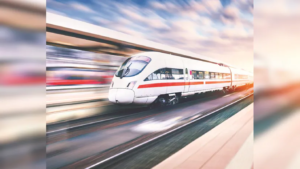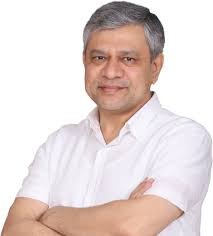The Ministry of Railways has tasked the Integral Coach Factory (ICF) in Chennai with manufacturing two high-speed trains capable of running at 250 km per hour (kmph). This directive, outlined in a letter from the Railway Board dated June 4, is part of the production program for 2024-25. These trains will feature a steel body and operate on standard gauge, with a maximum speed of 250 kmph and a running speed of 220 kmph.
 The new high-speed railways will be based on the Vande Bharat platform, aligning with the plan to increase the speed capabilities of future Vande Bharat railways. These railways will consist of eight coaches. The railways are also developing a test track for standard gauge railways in Rajasthan, which will be used to test high-speed trains and facilitate the export of Vande Bharat railways, which need conversion from broad gauge to standard gauge to meet global standards. Currently, India does not have any railways that can reach speeds of 250 kmph.
The new high-speed railways will be based on the Vande Bharat platform, aligning with the plan to increase the speed capabilities of future Vande Bharat railways. These railways will consist of eight coaches. The railways are also developing a test track for standard gauge railways in Rajasthan, which will be used to test high-speed trains and facilitate the export of Vande Bharat railways, which need conversion from broad gauge to standard gauge to meet global standards. Currently, India does not have any railways that can reach speeds of 250 kmph.
Experts, however, have raised concerns about the feasibility of this project. Sudhanshu Mani, the former general manager of the ICF who led the development of the first Vande Bharat railways, expressed skepticism about achieving the target speed by March 2025. He emphasized that while the ICF could potentially develop such trains th the right leadership and time, setting unrealistic deadlines could be counterproductive.
Train Minister
 Caretaker Railway Minister Ashwini Vaishnaw mentioned that the government aims to indigenize high-speed rail technology. The high-speed rails in India are being developed using Japanese Shinkansen technology, especially for the Mumbai-Ahmedabad corridor. Mani also noted that the specifications given to the ICF, such as using stainless steel for the body, might be a compromise due to the small number of trains ordered. He suggested increasing the order quantity to enable the development of more suitable aluminum-bodied trains
Caretaker Railway Minister Ashwini Vaishnaw mentioned that the government aims to indigenize high-speed rail technology. The high-speed rails in India are being developed using Japanese Shinkansen technology, especially for the Mumbai-Ahmedabad corridor. Mani also noted that the specifications given to the ICF, such as using stainless steel for the body, might be a compromise due to the small number of trains ordered. He suggested increasing the order quantity to enable the development of more suitable aluminum-bodied trains










